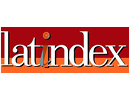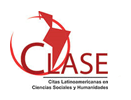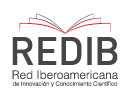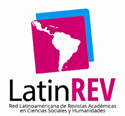The role of libraries in the time of Covid-19: reflections and proposals
DOI:
https://doi.org/10.21142/DES-1201-2020-0015Keywords:
COVID-19, Digital library, Childhood, Podcast, CultureAbstract
This essay reflects on the role of libraries in promoting access to literature and culture for children and young people during the COVID-19 pandemic. We begin with an examination of the initiatives aimed at this section of the public promoted by public libraries in the city of São Paulo, Brazil, between March and May 2020. This analysis reveals that the libraries’ digital actions were focused mainly on audiovisual material published on social media, in the form of reading mediation and storytelling. Libraries, it would appear, have not devoted the same effort to their role as curators of digital content, at a time when digital content has become the only option for many families. It is suggested, therefore, that libraries emphasize their curatorial role, and that they explore the podcast format as a possible medium for aesthetically and culturally valuable collaboration between libraries and their communities.
Downloads
References
Binoche, J. y Barrau, A. (2020). Please, let’s not go back to normal. Le Monde. Recuperado de https://www.lemonde.fr/idees/article/2020/05/06/please-let-s-not-go-back-to-normal_6038793_3232.html
Ministério da Saúde (2020). Painel Coronavírus. Recuperado de https://covid.saude.gov.br/
Chetty, K., Qigui, L., Gcora, N., Josie, J., Wenwei, L. y Fang, C. (2018). Bridging the digital divide: Measuring digital literacy. Economics: The Open-Access, Open-Assessment E-Journal, 12(2018-2023), pp. 1-20. Recuperado de https://doi.org/10.5018/economics-ejournal.ja.2018-23
Chowdhury, G. G. (2002). Digital divide: How can digital libraries bridge the gap? En E.-P. Lim, S. Foo, C. Khoo, H. Chen, E. Fox, S. Urs y T. Costantino (Eds.), Digital libraries: People, knowledge, and technology (pp. 379-391). Berlín: Springer Berlin Heidelberg.
Fisher, M. y Bubola, E. (2020). As Coronavirus deepens inequality, inequality worsens its spread. The New York Times. Recuperado de https://www.nytimes.com/2020/03/15/world/europe/coronavirus-inequality.html
Fuller, B., Lizárraga, J. R. y Gray, J. H. (2015). Digital media and latino families: New channels for learning, parenting, and local organizing. Nueva York: The Joan Ganz Cooney Center at Sesame Workshop.
Garner, B. (2019). Teaching students to become digital content curators. Fact or fiction? Cambridge: Cambridge Scholars Publishing.
Gidley, J. M. (2012). Futuros de la educación para una sociedad global en rápido cambio. En F. González (Ed.), Hay futuro. Visiones para un mundo mejor (pp. 411-436). Madrid: BBVA.
Goldin Halfon, D., Petit, M. y Arizpe, E. (2018). Una conversación entre Daniel Goldin Halfon y Michèle Petit, con Evelyn Arizpe como directora de orquesta. Jeunesse: Young People, Texts, Cultures, 10(1), pp. 134-168. Recuperado de https://jeunessejournal.ca/index.php/yptc/article/view/417
Guertin, L. A. (2010). Creating and using podcasts across the disciplines. Currents in Teaching and Learning, 2(2), pp. 4-12
Federación Internacional de Asociaciones de Bibliotecarios y Bibliotecas, IFLA, y Organización de las Naciones Unidas para la Educación, la Ciencia y la Cultura, Unesco (2013). Manifiesto de las IFLA/UNESCO sobre las bibliotecas digitales. Recuperado de https://www.ifla.org/ES/publications/manifiesto-de-las-ifla-unesco-sobre-las-bibliotecas-digitales
Kissler, S. M., Tedijanto, C., Goldstein, E., Grad, Y. H. y Lipsitch, M. (2020). Projecting the transmission dynamics of SARS-CoV-2 through the postpandemic period. Science, 368(6493), pp. 860-868. Recuperado de https://doi.org/10.1126/science.abb5793
Mon, L. (2015). Social media and library services. Chapel Hill: Morgan & Claypool.
Montgomery, L. M. (2019). Anne de Green Gables. Belo Horizonte; São Paulo: Autêntica Infantil e Juvenil.
Núcleo de Informação e Coordenação do Ponto BR (Ed.) (2020). Pesquisa sobre o uso das tecnologias de informação e comunicação nos domicílios brasileiros: TIC domicílios 2019. São Paulo: Comitê Gestor da Internet no Brasil.
Oyarzún, G. (2020). Libros y bibliotecas en tiempos de Zoom. El Comején. Recuperado de https://elcomejen.com/2020/05/16/libros-y-bibliotecasen-tiempos-de-zoom
Secretaria Municipal de Cultura de São Paulo (cidade) (2020). Biblioteca Online 2020. Chamada para interessados em realização de atividades artísticas online. Recuperado de https://www.prefeitura.sp.gov.br/cidade/secretarias/cultura/bibliotecas/noticias/?p=27784
Secretaria Municipal de Cultura de São Paulo (cidade) (2020). Frequência, matrículas, empréstimos, consultas e acervos dos serviços municipais de leitura vinculados à Coordenação do Sistema Municipal de Bibliotecas, segundo os tipos e serviços municipais de leitura, São Paulo. Recuperado de https://www.prefeitura.sp.gov.br/cidade/upload/consolidacao_2019_anual_versao_20200330_1588268458.xlsx
Shanhong, T. (2000). Knowledge Management in Libraries in the 21st Century. Proceedings of the 66th IFLA Council and General Conference. Recuperado de https://archive.ifla.org/IV/ifla66/papers/057-110e.htm
Sistema Municipal de Bibliotecas, SMB (2020). Dicas de Leitura. Fique em Casa. Recuperado de https://www.prefeitura.sp.gov.br/cidade/secretarias/cultura/bibliotecas/noticias/?p=27777
Toni, & Laíse (2013). Tem bicho que sabe... São Paulo: Bamboozinho.
Wolfe, J. (2015). The 21st Century Library: A conversation with NYPL’s Anthony Marx. Forbes. Recuperado de https://www.forbes.com/sites/joshwolfe/2015/06/01/the-21st-century-library-a-conversation-with-nyplsanthony-marx/#74fb0ebd3ee5
Downloads
Published
Issue
Section
License

Esta obra está bajo una licencia http://creativecommons.org/licenses/by-nc-sa/4.0/



















